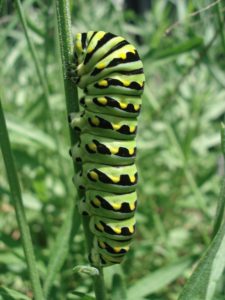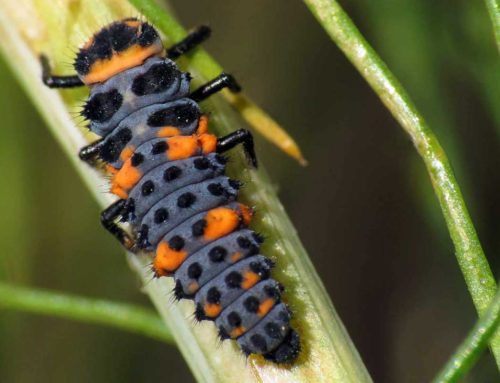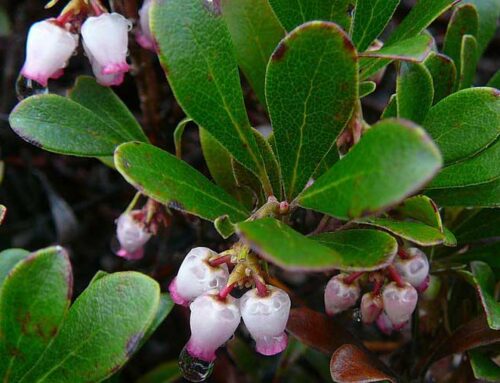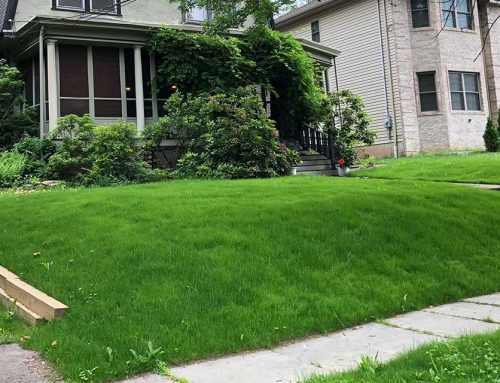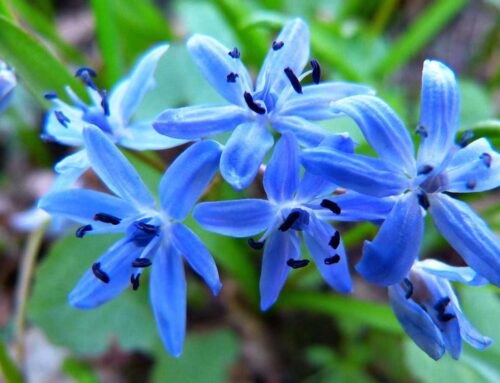Attracting Garden Guests – Black Swallowtails
Sustainable Landscaping
If you are growing parsley, dill, or fennel this year, chances are you’ve noticed a few small caterpillars gnawing at your plants, depending on where you are. These caterpillars are known as parsley worms, and turn into gorgeous black swallowtails (which are the state butterfly of New Jersey!). Not only are these butterflies very pleasing to look at, they are beneficial to your garden, and easy to care for. It can be a fun project to raise these butterflies and watch them under-go metamorphosis right before your own eyes. Here’s how you can help out any of these caterpillars you may find!
The best way to ensure these caterpillars will live to become butterflies is by placing them in jars when they are in their larval stage. If left on plants, they may die to their natural predators, which include spiders or aphids. To ensure their safety, trim off the leaves of the plant that the caterpillars are on (typically parsley, fennel, dill, sometimes carrot leaves) and just place them in the jar, without taking them off the leaves. You should fill up the jar with a decent amount of food for them to eat, as they will eat and grow very quickly. These caterpillars can be quite small early on black with a white stripe, and will become striped with green, black, or white, and become two inches large before metamorphosis. They are fairly easy to spot on herbs, even when small. Do not hold these caterpillars when they are small, it can’t hurt you, but your skin can hurt them when they’re young. And be warned that if you anger one of these caterpillars, they will secrete a liquid from their antennae that has a foul smell but cannot harm you. Be sure the jar has a good amount of holes poked in the lid to give them oxygen, and give them more food whenever the stems start to get bare. Eventually, they will pupate and enter their chrysalis. They will emerge in 1-2 weeks, typically in the morning.
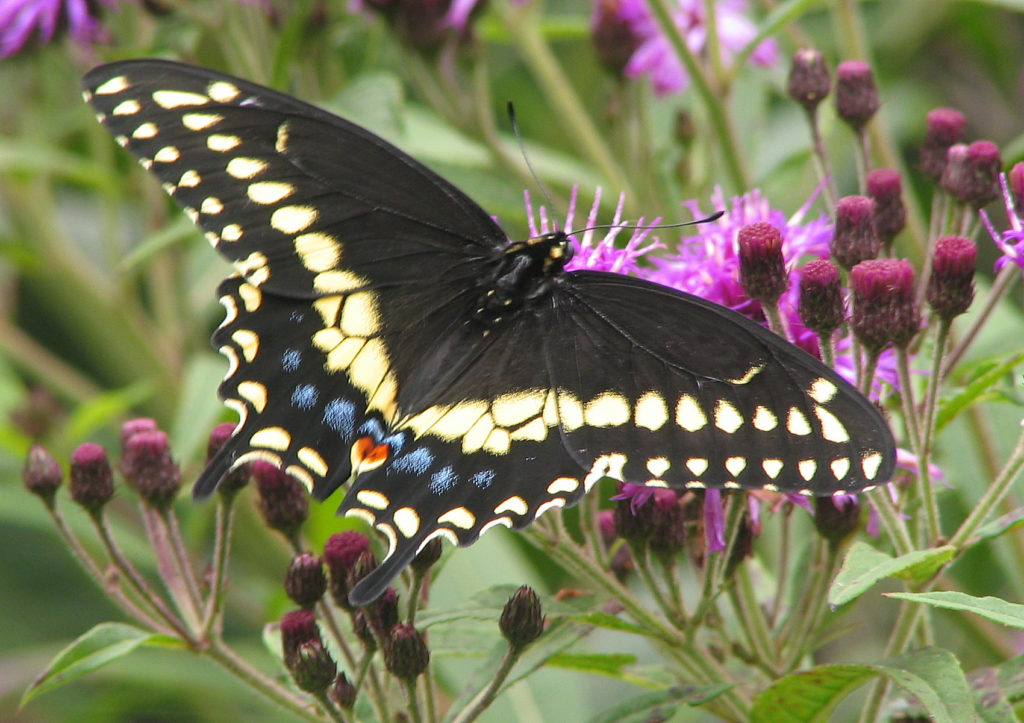 The adult butterflies are not only gorgeous, they will also help pollinate your garden flowers. However not only can they be beneficial for your flowers, but you will be benefiting them as well, as pollinator populations are at large risk of being destroyed for many reasons, like usage of chemicals in pesticides, as well as loss of habitat. And there are bird species such as chickadees that rely on caterpillars as their primary food source, so it’s not just the pollinators that are at risk. It can be very beneficial for many species just to plant a few extra plants that will attract and aid pollinators, and will bring many more visitors to your garden, as well as more pollinated flowers!
The adult butterflies are not only gorgeous, they will also help pollinate your garden flowers. However not only can they be beneficial for your flowers, but you will be benefiting them as well, as pollinator populations are at large risk of being destroyed for many reasons, like usage of chemicals in pesticides, as well as loss of habitat. And there are bird species such as chickadees that rely on caterpillars as their primary food source, so it’s not just the pollinators that are at risk. It can be very beneficial for many species just to plant a few extra plants that will attract and aid pollinators, and will bring many more visitors to your garden, as well as more pollinated flowers!
Lincoln Landscaping “The Natural Choice”
Mike Kolenut President & CEO
https://lincolnlandscapinginc.com
(201) 848-9699

